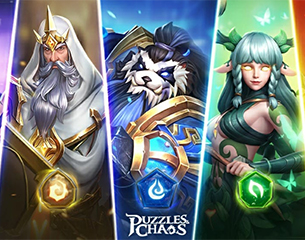- Channel : VIP Crossing
The success of language models such as ChatGPT has challenged the supremacy of traditional search engines.
AI-powered chatbots, like ChatGPT, could dethrone these search engines, as demonstrated by the successful integration of ChatGPT into the Bing search engine, which resulted in a 25% increase in monthly page visits. This paradigm shift has pushed Google to launch the Magi Project to remain competitive.
The Mountain View-based company has already announced its chatbot, Bard, comparable to ChatGPT (and tested in the United States). Google is reportedly developing an entirely new AI-based search engine capable of anticipating our needs, which will take time to develop. In the meantime, Google is improving its existing search engine with new AI-based features.

AI is now one of Google's top priorities. Sources had previously indicated that executives declared a "red alert" following the release of ChatGPT, as products like OpenAI's ChatGPT and similar generative AIs pose a threat to its search engine.
Samsung reportedly considered replacing Google with Bing on its smartphones. And now, the company also needs to prove to its partners that its products are still relevant.
The American newspaper, The New York Times, mentions a team of 160 people working on Magi. This project could be unveiled at the Google I/O conference on May 10, with a gradual rollout of features starting this spring and then in the fall, initially in the United States. Google has signed a $3 billion deal to be the default search engine on Samsung, and there is a $20 billion deal with Apple upon renewal in 2023. This expenditure proves useful in securing Google's revenue.
That's why Google is trying to prevent the ChatGPT revolution. The company finds itself in an uncomfortable position: while it fears for its future and would like to slow down this development, it is also compelled to jump on the generative AI train. As many as 20 projects are reportedly underway at Google, including Bard and LaMDA.
Revolution in SEO techniques
The American company, which has long relied on the sheer dominance of its search engine, is now forced to transform itself, and quickly. The advent of the Magi Project has major implications for SEO, let's face it. Google's ability to understand the context of queries and provide accurate answers through AI could redefine SEO techniques. SEO specialists will need to adapt their strategies to optimize their content based on this new search engine model.
We can talk about new opportunities for brands. A better understanding of the context of user queries could allow brands to target their audience more precisely and provide more relevant answers to their needs. Moreover, the ability to carry out transactions directly on the Google platform could simplify the customer journey and increase conversions.

But what about SEO on these platforms? These new techniques fall under "Optimization for Machine Responses" (OMR), which aims to maximize the chances of being cited in AI engine responses.
The Magi Project offers a more conversational and intuitive search experience through its chat-like interface. This change could influence how users interact with search engines, promoting a more natural and seamless interaction.
The Magi Project is based on the LaMba language model, which is an evolved version of Google's LaMDA language model. The latest version of LaMDA, called PALM2, was announced in April 2023.
This advanced language model uses AI to generate natural and relevant responses to user queries. It can understand context and provide accurate answers, enabling fluent conversations on various topics.
With PALM2, chatbots have taken a significant leap forward, offering users a more natural and interactive conversation experience.
A complete revamp of search results
The Magi Project aims to reinvent how we use search engines through AI. Users will be able to get relevant answers to their questions while facilitating direct transactions on the Google platform. This could result in an ultra-simplified web navigation without the need to click on multiple links to obtain the desired Google search result.
This promises to profoundly transform the world of SEO. By using AI to provide a more personalized and relevant search experience, it opens the door to a new era of SEO, changing how brands reach and interact with their audience. While this project presents challenges for SEO specialists, it also offers new opportunities to optimize content and enhance the user experience.
With such a project, Google aims to provide a more conversational and personalized search experience while delivering highly relevant answers to user queries. This requires a revision of our current SEO strategies and a deep understanding of this new initiative.
A conversational search engine: Imagine a virtual assistant that perfectly understands your preferences and can anticipate your needs. That's precisely what Google aims for with the SGE. You'll be able to have a smooth conversation with the search engine, chaining queries without having to go back to the search bar.
Personalized answers to queries: With AI, Google will be able to provide tailored answers to each user. Search results will be personalized based on the preferences and habits of each individual.
Optimized advertisements: The Search Generative Experience will also optimize the ads shown to users. Ads will be better targeted based on specific interests and needs of each individual.
Multiplication of data sources: With the Magi Project, Google will be able to leverage a multitude of data sources to enrich search results. This means that relevant and up-to-date information will be available more quickly and comprehensively.
Enhanced local packs: Local packs, which provide information about local businesses and services, will also be improved through the Search Generative Experience. You'll have access to more precise and useful details about the local businesses that interest you.
In summary, thanks to the Magi Project and the Search Generative Experience, searching for information on the Internet will become more conversational, personalized, and comprehensive, offering an optimized user experience on Google.
To make the most of the Magi Project, it is essential to stay updated on the latest trends and innovations in SEO. This is an exciting time for the world of search engine optimization, and we look forward to seeing how Google's Magi Project will continue to shape the future of SEO.











